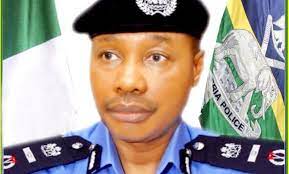The Inspector General of Police, Usman Alkali Baba has said that the Nigeria Police Force (NPF) has so far received zero funds from the Nigeria Police Trust Fund two years after it was set up.
It will be recalled that the objective of the Nigeria Police Trust Fund Act 2019 was to provide a legal framework for the management and control of a special intervention fund for training and retraining of personnel of the Nigeria Police Force and for the provision of state-of-the-art security equipment and other related facilities for the enhancement of the skills of the officers of the Nigeria Police Force.
However, speaking through a representative at the roundtable organized recently in Abuja by the Rule of Law and Accountability Advocacy Centre (RULAAC) and Partners West Africa Nigeria (PWAN) in partnership with Open Society Justice Initiative (OSJI) to review the implementation and impact of the Nigeria Police Trust Fund (NPTF) two years after it was signed into law by President Muhammadu Buhari and one year after the President constituted the Board of Trustees as required under the Act establishing the Trust Fund, the IGP noted the dire funding deficit for the Police and the need for the NPF to be effectively managed to fulfill its mandate of filling the funding gap for the NPF especially assisting with providing the enabling environment, tools, infrastructure, training and retraining to enhance Police operations.
He stated that the NPF carried Needs Assessment of the Force between September and October 2020 which showed that the NPF would need at least N1.8 trillion for one year.
According to him, the needs were collated from all the Police Departments from A to G adding that those were the priority needs which included Police operational vehicles, arms and ammunition, protection gears, communication gadgets, accoutrements among others.
Baba further disclosed that the needs assessment was submitted to the Ministry of Police Affairs to make input and then forwarded to the PTF.
Also speaking, former Executive Secretary of the Lagos State Security Trust Fund (LSSTF), Mr. Fola Arthur-Worrey shared his experience managing the Lagos State Security Trust Fund, drawing comparisons between the LSSTF and the NPTF and highlighting best practices and lessons that could be drawn from LSSTF by the Managers of the NPTF.
Mrs. Faith Nwadishi made a presentation on the role of the Civil Society Organizations (CSOs) in monitoring the NPTF budget. She concluded that monitoring the NPTF by CSOs was critical in assisting the Board of Trustees, Implementation Committee, other committees, policy makers and contributors (to the fund) in obtaining the knowledge and insight they require to make informed operational decisions.
On his part, the Executive Secretary, National Human Rights Commission (NHRC), Mr. Hillary Ogbonna made a presentation on the importance of police funding effectiveness and accountability emphasizing that the Police require adequate funding and enhanced welfare in order to fulfill its responsibilities, consequently, the PTF should make this top priority.
He added that the PTF should meet the Nigeria Police Force’s training and retraining needs which according to him, would improve their capacity to perform their tasks and further ensure accountability.
During plenary, participants observed that PTF is a quick intervention mechanism noting that it needs speed and should not be subject to legislative appropriation. They believed that it should be a first line charge having nothing to do with budget and should not be trapped in bureaucracy. They pointed out that the IGP should be able to prepare a memo and send to the PTF itemizing the immediate needs of the Police and that the BOT should be able to speedily take decisions.
Participants noted that the Trust Fund should be more reliant on private funds than on government resources adding that the PTF should speak out on their challenges and engage with the Civil Society Organizations who could amplify their challenges and needs. They also submitted that the PTF should also work with the Federal Inland Revenue Service which according to them, should assist with other sources of PTF funds such as taxes.
Participants disclosed that it was not clear how much had so far accrued to the PTF besides what was recently reported in the media as approvals by the National Assembly for the PTF adding that the purpose of the PTF appeared defeated two years after.
“N38 million budgetary allocations for the Police for operational vehicles for one year is grossly inadequate. The Police need help from the PTF in the areas of equipment, infrastructure and training and retraining. The PTF should fulfill its mandate by filling the funding gap for the Nigeria Police to perform effectively.
“The NPF currently has only one functional helicopter. One was gunned down during operation. The NPF needs armoured specialized helicopters. The PTF should come handy with repairs of damaged police infrastructure across the country. The 2023 general elections is around corner and the Police will be struggling with double challenges of tackling growing insecurity and election security management at once. The military has no role in elections, there should be less involvement of the military in elections. The PTF should be managed effectively to provide the needed fund for the Police to effectively discharge their internal control functions”, they said.
Photo: Nigeria’s Inspector General of Police, IGP Usman Alkali Baba.
Send your news, press releases/articles to augustinenwadinamuo@yahoo.com. Also, follow us on Twitter @ptreporters and on Facebook on facebook.com/primetimereporters or call the editor on 07030661526, 08053908817.

